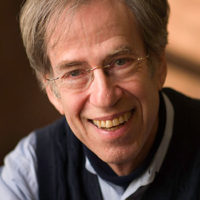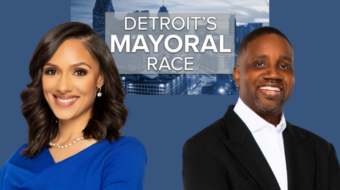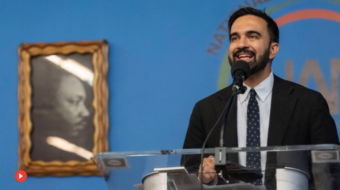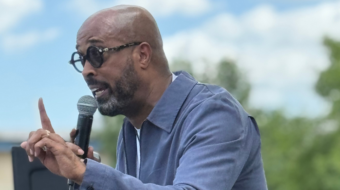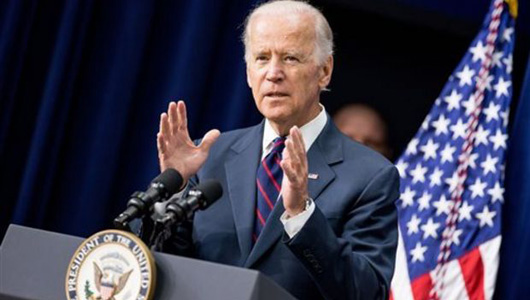
WASHINGTON – Vice President Joe Biden said yesterday that he will not enter the Democratic Party’s presidential primary race, but that he would stay in the fight to move “the arc of this nation toward justice.” Biden announced his decision in the White House Rose garden flanked by his wife, Jill Biden, and President Obama.
Just about all political observers agree that Biden is one of the few politicians in Washington who genuinely and wholeheartedly feels called to public service in order to help build a better, more equitable country. His son, Beau Biden, was cut from the same cloth. He had served as attorney general of Delaware and before he got sick was considered a shoo-in for senator or governor.
In his Rose Garden speech, Biden said “… through personal triumphs and tragedies, my entire family – my son Beau, my son Hunter, my daughter Ashley, Jill – our whole family – and this sounds corny – but we found purpose in public life. …
“So we intend, the whole family – not just me – we intend to spend the next 15 months fighting for what we’ve always cared about, what my family has always cared about, with every ounce of our being.”
Why did Biden turn away from the presidential run?
In his Rose Garden announcement yesterday, Biden said that he had delayed entering the race until after his family finished their period of mourning for Beau, who died of brain cancer earlier this year. Now, Biden said, it’s too late to start a campaign.
He said “There is no timetable for this process [of mourning]. The process doesn’t respect or much care about things like filing deadlines or debates and primaries and caucuses.
“The good news is … my family and I have worked through the grieving process … Unfortunately, I believe we’re out of time – the time necessary to mount a winning campaign for the nomination.”
Many hard bitten pundits here said that if Democratic Party decision makers had believed that Hillary Clinton’s poll numbers were dropping, they would have convinced Biden to enter the race no matter how he was feeling about the loss of his son.
However, starting with the debate between Democratic contenders for the nomination, it was clear Clinton’s favorability ratings were on the rise.
Had he entered the race, many observers believe Biden would have sounded more like Bernie Sanders than Clinton.
Along with announcing that he wasn’t going to run, Biden said:
“I believe this …
“We cannot sustain the current levels of inequality that exist in this country.
“The huge sums of unlimited and often secret money pouring into our politics is a fundamental threat to our democracy. The middle class will never have a fighting chance in this country as long as just several hundred families, the wealthiest families, control the process.
“We need to keep [fighting for] the rights of the LGBT community, immigration reform, equal pay for women and … rooting out institutional racism.
“We need to commit to 16 years of free public education for all our children.”
Furthermore, at the recent White House Summit on Worker Voice, Biden said that the most effective tools for fighting economic inequality are strong unions and collective bargaining.
In a poll done by MSNBC immediately after Biden announced he will not run, 73 percent of the respondents said they wished he had entered the race.
However, Biden’s decision is firm.
Fundamentally, Biden’s decision does not change the tasks before the people of the U.S.
The truth remains that people committed to building a more progressive America have to unite behind a candidate; and they have to organize to make sure the candidate stays accountable and continues to promote a progressive agenda.
Vice President Joe Biden says he will help.
“… while I will not be a candidate,” he said, “I will not be silent. I intend to speak out clearly and forcefully, to influence as much as I can where we need to go as a nation.”
Photo: AP


